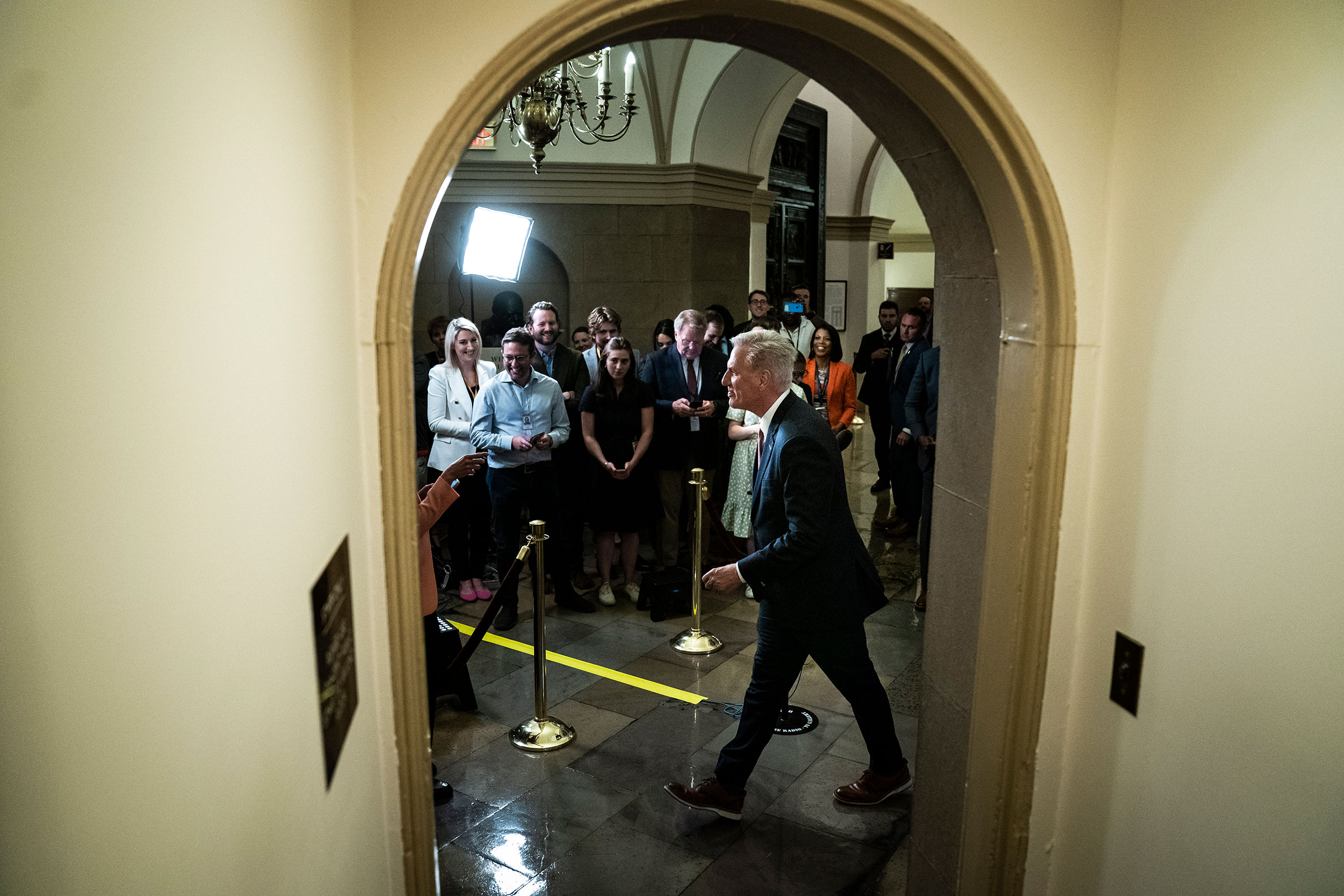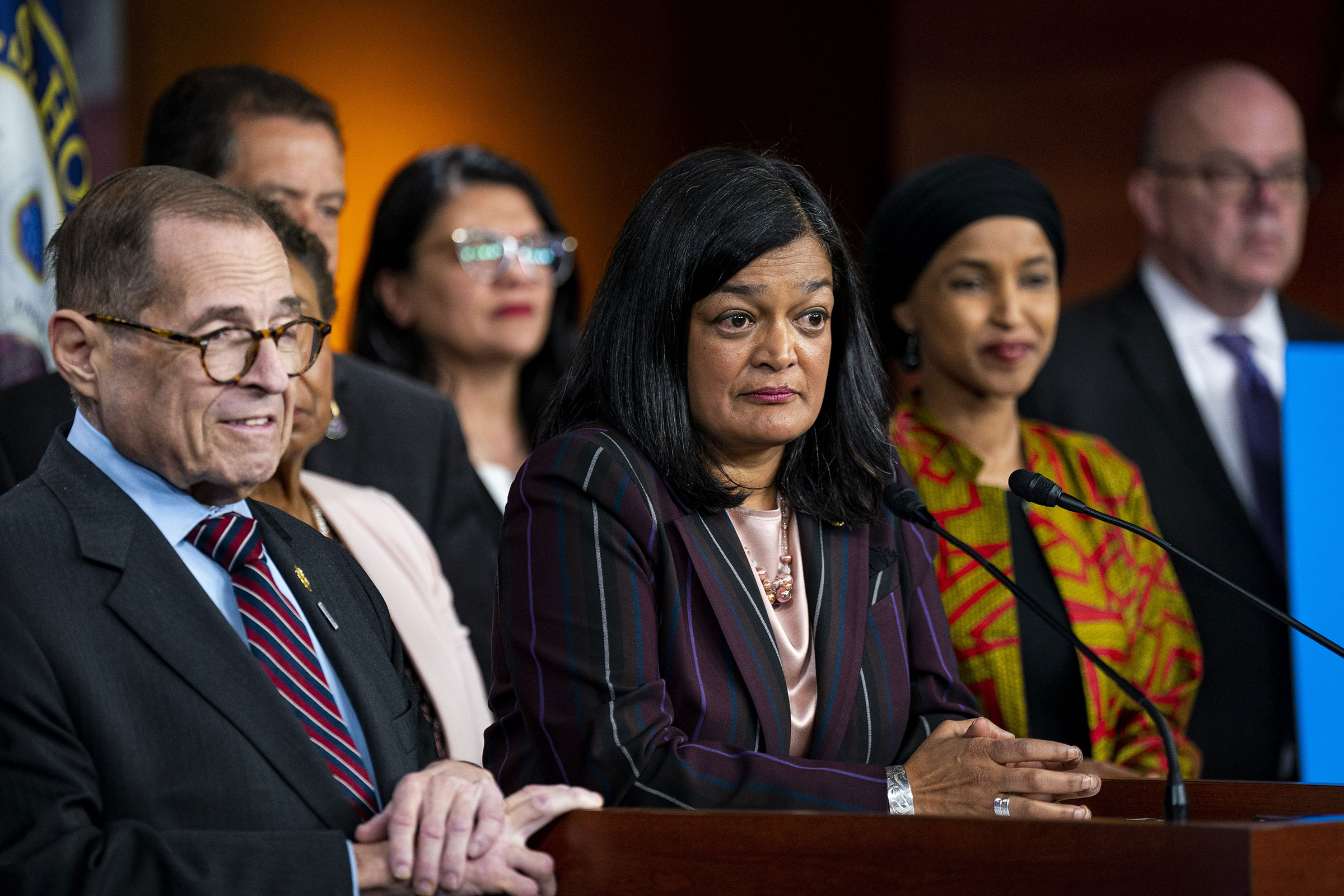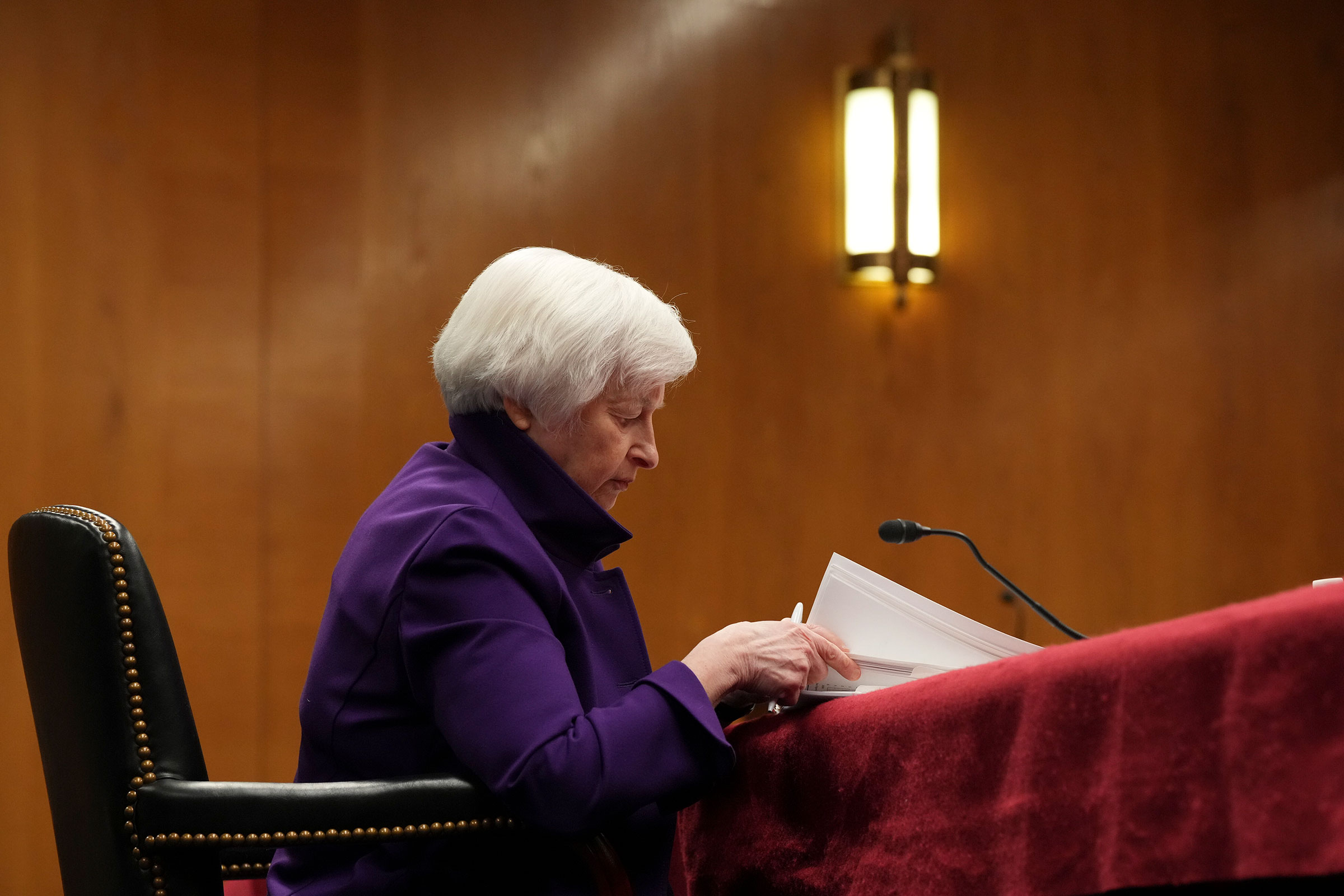
House Speaker Kevin McCarthy said that the meeting between top GOP and senior White House negotiators on Wednesday moved in a positive direction — but indicated that there are still substantial issues to resolve.
“I think we’ve made some progress working down there, so that’s very positive,” McCarthy said
Asked if the White House moved closer to GOP demands on spending cuts, McCarthy told CNN: “There was a number of issues that are out there that we’ve been working on, I think being able to find some ways that we can probably get to fruition on a couple of these, there’s still a number of these out there.”
McCarthy would not provide specific details on sticking points – but said that he is not budging from his demand to cut spending and that work requirements for social safety net programs are on the table.
He reiterated that the only concession he is willing to give is to raise the national debt ceiling.
McCarthy's comments suggest that the White House may be willing to give in on GOP demands.
“What the White House has asked us for is to raise the debt ceiling,” McCarthy said.
He still believes that there is still enough time to reach an agreement before the default deadline.
“I still believe we have time to make an agreement and get it done,” McCarthy said when asked about his comments earlier this week that they need an agreement this week to avoid default.
One of McCarthy’s negotiators, GOP Rep. Patrick McHenry remained longer at the White House.
The speaker said he does not have another meeting scheduled with President Joe Biden at this time.
Asked about comments made by Progressive Rep. Pramila Jayapal, that Republicans rejected $3 trillion in cuts offered by the White House, McCarthy accused Biden of wanting to tax people more.
“I know the president wants to tax people more … so it really goes to the fundamental problem that we have Democrats want to spend more and tax more,” McCarthy said.







